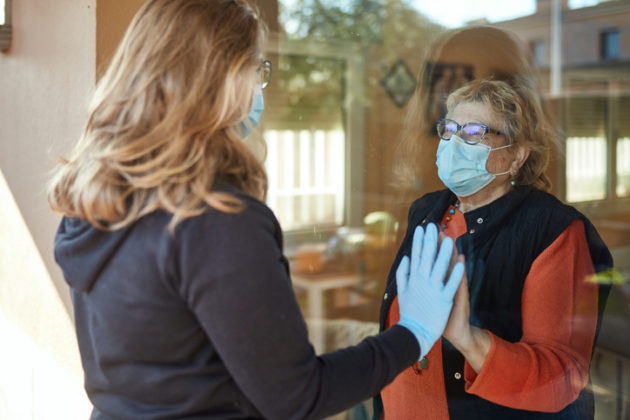Additionally, CDC is updating the recommended quarantine period for anyone in the general public who is exposed to COVID-19. For people who are unvaccinated or are more than six months out from their second mRNA dose (or more than 2 months after the J&J vaccine) and not yet boosted, CDC now recommends quarantine for 5 days followed by strict mask use for an additional 5 days. Alternatively, if a 5-day quarantine is not feasible, it is imperative that an exposed person wear a well-fitting mask at all times when around others for 10 days after exposure. Individuals who have received their booster shot do not need to quarantine following an exposure, but should wear a mask for 10 days after the exposure. For all those exposed, best practice would also include a test for SARS-CoV-2 at day 5 after exposure. If symptoms occur, individuals should immediately quarantine until a negative test confirms symptoms are not attributable to COVID-19.
Isolation relates to behavior after a confirmed infection. Isolation for 5 days followed by wearing a well-fitting mask will minimize the risk of spreading the virus to others. Quarantine refers to the time following exposure to the virus or close contact with someone known to have COVID-19. Both updates come as the Omicron variant continues to spread throughout the U.S. and reflects the current science on when and for how long a person is maximally infectious. These recommendations do not supersede state, local, tribal, or territorial laws, rules, and regulations, nor do they apply to healthcare workers for whom CDC has updated guidance.
Data from South Africa and the United Kingdom demonstrate that vaccine effectiveness against infection for two doses of an mRNA vaccine is approximately 35%. A COVID-19 vaccine booster dose restores vaccine effectiveness against infection to 75%. COVID-19 vaccination decreases the risk of severe disease, hospitalization, and death from COVID-19. CDC strongly encourages COVID-19 vaccination for everyone 5 and older and boosters for everyone 16 and older. Vaccination is the best way to protect yourself and reduce the impact of COVID-19 on our communities.
The following is attributable to CDC Director, Dr. Rochelle Walensky:
“The Omicron variant is spreading quickly and has the potential to impact all facets of our society. CDC’s updated recommendations for isolation and quarantine balance what we know about the spread of the virus and the protection provided by vaccination and booster doses. These updates ensure people can safely continue their daily lives. Prevention is our best option: get vaccinated, get boosted, wear a mask in public indoor settings in areas of substantial and high community transmission, and take a test before you gather.”




